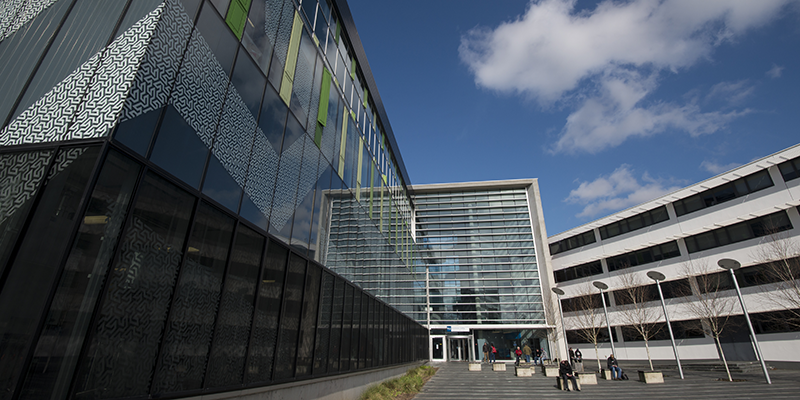Mechatronic engineering meets the increasing demand from industry for engineers with cross-disciplinary skills in the fields of robotics, flexible manufacturing, electromechanical power systems and electrical power transmission and distribution systems.
You will investigate the problems of combining electrical and mechanical components into electromechanical devices or systems such as micro-machines, electric vehicles and powerful industrial robots.
Project work begins in the first year and continues with design and build tasks in every year of your degree. You will get the chance to exercise your creative talent, deploy your skills and exploit the knowledge gained to design electromechanical devices.
Key areas of study include:
- theoretical and computational aspects of electromagnetism
- robotics, communications and control
- mechanics and engineering design
Students are eligible for funding under the Power Academy Scheme.
We have excellent relationships with employers, and have our own Careers Hub website. We also run an annual careers fair.
View the 2019/20 programme specification document for this course
View the 2020/21 programme specification document for this course
Accreditation
Our BEng Mechatronic Engineering degree is accredited by the Institution of Engineering and Technology (IET) and we are a member of the IET Power Academy bringing opportunities for generous scholarships.
Programme Structure
Students undertake three years of study. Each year there are compulsory modules. However, the degree has been designed to maximise student choice by allowing you to tailor the degree structure to suit your own interests.
To Apply
All undergraduate applications for Electronics and Computer Science should be made online through the Universities and Colleges Admissions Service (UCAS).
Find out how to apply and get further details about UCAS' website, phone and contact details.
Foundation Year
If you want to study for a degree in Mechatronic Engineering but you did not choose mathematics or physics at A level, our Foundation Year may be of interest. This is a one-year full-time course integrated with a further three-year degree. If you would like to apply for BEng Mechatronic Engineering with Foundation Year (H360) you can find out more about the Foundation Year here.
Key Facts
We have pioneered many of the most important advances in electronics and microelectronics over the past 30 years
We lead the UK for the volume and quality of Electrical and Electronic Engineering research (REF 2014)
97% of our Electrical and Electronic Engineering research outputs are rated as world-leading or internationally excellent (REF 2014)
The Guardian University Guide 2019 shows the University of Southampton second in the UK for Electronics and Electrical Engineering
We are ranked second equal for graduate prospects in Electrical and Electronic Engineering in the Complete University Guide 2019
Southampton is ranked in the top 100 universities for Electrical and Electronic Engineering in the 2018 QS World Rankings, and top 10 in the UK
We are Europe’s top-ranked university for Telecommunication Engineering – ShanghaiRanking's Global Ranking of Academic Subjects 2018
We have outstanding experimental research facilities, including our world-class high-voltage laboratory and our £110m interdisciplinary clean room


